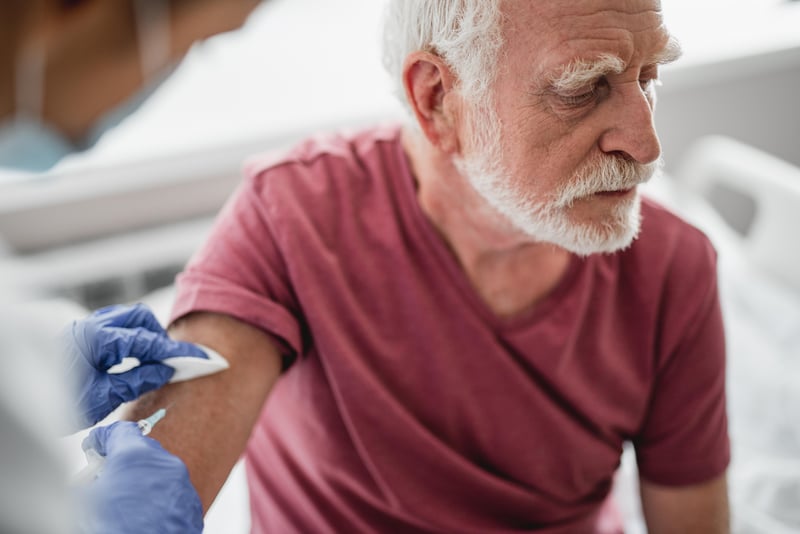(330) 876-1228
8507 Main StreetKinsman, OH 44428
(330) 876-1229

For older adults, getting vaccinated provides protection against COVID-19, but getting a booster is a key part of maintaining that immunity, a new study confirms.
"The data support the CDC guidelines for COVID-19 vaccination and affirm that the vaccine is initially able to mount a good antibody response," said study co-author Dr. Sean Leng. He's a professor of medicine and geriatric specialist at the Johns Hopkins University School of Medicine.
But older people need to be especially encouraged to get the vaccine and boosters to keep them protected from breakthrough infections as immunity wanes, Leng noted in a university news release.
The researchers studied more than 80 men and women ages 75 to 98 from Baltimore. The participants had received two initial doses of the mRNA vaccines made by either Pfizer or Moderna. They had no known history of COVID infection.
Another 84 adults younger than 75 with the same vaccination and infection history were included as a comparison group.
The older adults had antibody levels in their blood that were three to eight times lower than in the younger group. Older males had one to three times lower antibody levels even than older women.
The participants then got COVID booster shots. About 14 to 30 days later, the antibody levels in the older adults matched those in the younger group. Men no longer had lower antibody levels than women.
Previous research had documented a significant decline in the protective antibody response among all vaccine recipients six months after the initial two-dose series of mRNA vaccines, the study noted. This was especially true in older adults whose immune systems weaken with age. That research had also documented the sharper decline in immunity in men.
Clinical trials for the vaccines had shown a high antibody response in older adults, providing them with robust protection. However, continued monitoring had shown a decline in antibodies after six months, hence the need for boosters.
Clinical Infectious Diseases published the findings recently.
More information
The U.S. Centers for Disease Control and Prevention has more on COVID-19 vaccines.
SOURCE: Johns Hopkins Medicine, news release, Sept. 29, 2022
